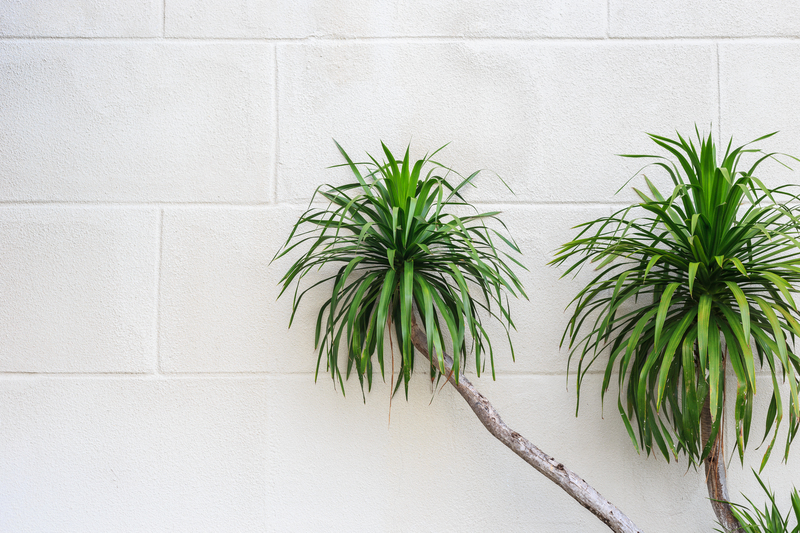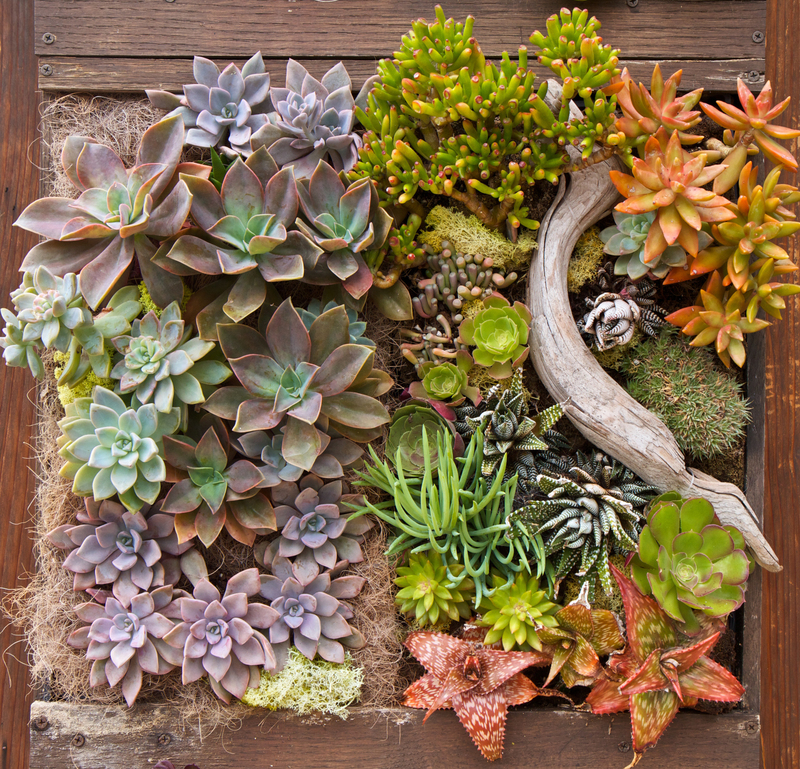Recycling Kitchen Waste into Garden Nutrients
Posted on 31/08/2025
Recycling Kitchen Waste into Garden Nutrients: A Sustainable Guide
Are you searching for sustainable gardening practices to enrich your soil while decreasing the amount of household waste? Recycling kitchen waste into garden nutrients is an effective, eco-friendly solution that turns everyday scraps into valuable resources. This comprehensive guide will explore various methods, tips, and benefits on how to successfully convert kitchen leftovers into thriving garden soil amendments.

Why Recycling Kitchen Waste is Essential for Your Garden
Food waste is a significant environmental issue, with millions of tons ending up in landfills each year. However, by reusing kitchen scraps for gardening, you not only minimize waste but also promote healthier, more productive soils. Here's why incorporating kitchen composting and nutrient recycling into your gardening routine is a win-win:
- Reduces landfill emissions: Organic kitchen waste decomposes without oxygen in landfills, releasing methane--a powerful greenhouse gas. Backyard recycling prevents this.
- Enriches soil fertility: Decomposed food scraps add vital nutrients and organic matter, boosting soil structure, water retention, and microbial activity.
- Cuts fertilizer costs: Homemade compost and soil modifiers reduce the need for synthetic fertilizers, saving money and the environment.
- Closes the nutrient loop: Instead of extracting and discarding nutrients, you cycle them back into your garden ecosystem for healthier plants and crops.
What Types of Kitchen Waste Can Be Recycled?
Not all kitchen scraps are created equal when it comes to garden nutrient recycling. Knowing which wastes are beneficial ensures rapid decomposition and prevents unwanted pests or odors. Here's a quick list of the best kitchen scraps for composting and soil enrichment:
- Fruit and vegetable peels and scraps
- Coffee grounds and paper filters
- Tea leaves and bags (non-plastic)
- Eggshells (crushed)
- Stale bread and grains (in moderation)
- Nut shells (except black walnut)
- Old pasta or rice (without oil/sauce; small amounts)
Avoid adding meats, oils, dairy, or heavily processed foods--these can attract pests and slow down decomposition.
Effective Methods for Recycling Kitchen Waste in the Garden
1. Traditional Composting
Composting is the classic method for recycling food scraps into garden nutrients. By combining "green" (nitrogen-rich) materials like kitchen waste with "brown" (carbon-rich) materials like dried leaves, and maintaining moisture and aeration, you create a rich, earthy compost perfect for garden use.
- Choose a compost bin or build a pile: Place in a well-drained, partially shaded spot.
- Add layers: Alternate kitchen waste with brown materials such as leaves, cardboard, or straw.
- Maintain moisture: Keep the pile damp, like a wrung-out sponge.
- Turn regularly: Aerate the pile once every 1-2 weeks to speed up decomposition.
- Harvest: In 2-6 months, your compost should look dark, crumbly, and smell earthy--it's ready for the garden!
2. Vermicomposting (Worm Composting)
Vermicomposting uses red wiggler worms to rapidly convert kitchen leftovers into nutrient-rich castings, especially suitable for small spaces and indoor use.
- Set up a worm bin: Choose a ventilated container and add bedding like shredded newspaper and moist coco coir.
- Add worms: Red wigglers (Eisenia fetida) are the best species.
- Feed: Bury small amounts of chopped fruit and vegetable scraps under the bedding.
- Harvest: Every 2-3 months, collect the dark, crumbly castings and use them as a soil conditioner around plants.
3. Bokashi Composting
The Bokashi method uses beneficial microbes to ferment all types of kitchen waste--including small amounts of dairy and meat. It's fast, compact, and nearly odorless, making it ideal for urban gardeners.
- Add food scraps to a Bokashi bucket: Sprinkle with Bokashi bran (inoculated with effective microbes) after each addition.
- Ferment: Seal tightly and allow to ferment for 2 weeks.
- Bury or compost: The fermented waste can then be buried in soil or added to a compost pile, breaking down quickly and enriching the earth.
4. Direct Trenching
One of the simplest ways of recycling food scraps for garden enrichment is to bury kitchen waste directly in garden trenches. It slowly decomposes, feeding soil life and future plantings.
- Dig a trench: About 12 inches deep, in an empty or fallow bed.
- Add chopped food scraps: Fill the trench halfway, then cover thoroughly with soil.
- Wait: Allow 1-2 months before planting over the trench for the materials to break down safely.
How to Use Compost and Kitchen Waste in the Garden
Once your kitchen waste is recycled into compost or worm castings, it can be used in several ways to promote lush, vigorous growth:
- Topdressing: Spread compost around the base of established plants to feed nutrients directly to roots.
- Soil amendment: Mix compost into garden beds before planting to boost fertility and improve texture.
- Making compost tea: Steep a shovelful of compost in water for 1-2 days, then use the liquid to water plants and inoculate soil with beneficial microbes.
- Potting mix component: Blend compost into potting soil for containers and raised beds.
Special Tips for Maximum Nutrient Cycling
- Chop kitchen scraps finely before composting for faster breakdown.
- Balance green and brown materials in your compost pile to avoid odors and ensure healthy decomposition.
- Store kitchen waste in a sealed container and add regularly to your compost system.
- Monitor moisture; too much water leads to slime and odors, while dryness slows decomposition.
- Rotate compost or trenching locations to spread nutrients evenly across your garden beds.
Benefits of Recycling Kitchen Waste for Garden Health
The advantages of transforming household kitchen scraps into garden nutrients extend beyond just reducing waste. The ongoing cycle of composting and soil enrichment leads to long-term gains, including:
- Improved soil fertility: Regularly amended soils grow stronger, more resilient plants with better yields.
- Enhanced soil structure: Organic matter increases aeration, drainage, and moisture retention, benefiting all garden crops.
- Microbial diversity boost: Composting supports earthworms, fungi, and bacteria critical for plant health and nutrient cycling.
- Fewer plant diseases: Healthy soils and beneficial microorganisms help suppress plant pathogens.
- Resource conservation: Reusing what you already have lessens dependence on finite resources and reduces your carbon footprint.
Environmental Impact of Kitchen Waste Recycling
About 30% of the world's food is wasted each year, much of it at the household level. Landfilled organic matter is a major source of greenhouse gas emissions, contributing to climate change. By recycling kitchen waste at home, gardeners play a key role in both carbon reduction and sustainable food production.
Compost-amended soils also sequester more carbon than unimproved soils, locking organic carbon in stable forms and mitigating environmental impacts.
Common Questions about Recycling Food Waste in the Garden
Can all kitchen waste be composted?
No. Avoid composting meat, bones, dairy, and oily foods; they attract pests and slow decomposition. Stick to fruit, veggies, grains, coffee grounds, tea, and eggshells for best results.
Is compost safe to use on food crops?
Yes--if waste is fully composted and no prohibited materials (meat, dairy, pet waste) are added, compost is an ideal amendment for vegetable gardens and fruit trees.
How long does it take to turn kitchen waste into compost?
The process takes from as little as two months to six months, depending on the system, batch size, and conditions (temperature, aeration, material size).
How do you prevent pests from accessing compost bins?
Keep lids closed tightly, avoid adding meats and sweets, and, if necessary, consider rodent-proof bins made of hard plastic or metal.
What about apartment or small-space gardeners?
Vermicomposting and Bokashi are perfect for indoor and small-space setups. Or, look for community composting programs that accept kitchen waste drop-offs.

Innovative Ways to Reuse Kitchen Waste without Composting
Composting isn't the only path. Here are some creative suggestions for maximizing every bit of kitchen scraps:
- Regrow veggies: Place the ends of green onions, celery, or carrots in water to sprout fresh greens on your windowsill.
- Eggshell fertilizer: Dry and crush eggshells, then sprinkle directly around plants for a slow-release calcium boost.
- Coffee ground mulch: Dry and sprinkle grounds around acid-loving plants like blueberries or hydrangeas.
- Banana peel tea: Soak banana peels in water for a few days, then use the solution to water potassium-loving plants like tomatoes and roses.
Conclusion: Cultivating Sustainability by Recycling Kitchen Waste into Garden Nutrients
Recycling kitchen scraps for garden enrichment is a simple, impactful way to nurture both your plants and the planet. Whether through composting, vermicomposting, Bokashi fermentation, or direct trenching, every method recycles vital nutrients and organic matter, producing healthier gardens and reducing your home's ecological footprint. Start today, and your soil--and the environment--will thank you!
Ready to transform your household habits? Begin collecting and recycling your kitchen waste into garden nutrients today for a more bountiful, sustainable tomorrow.



